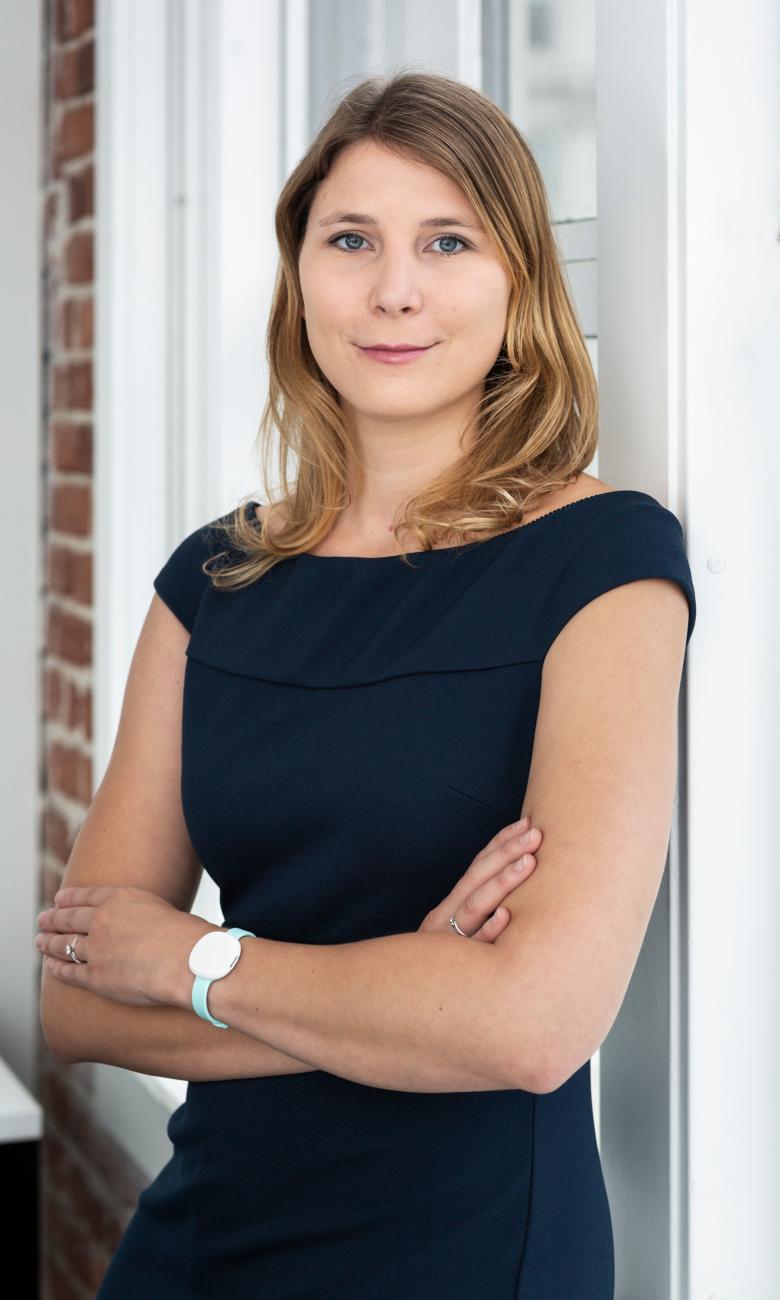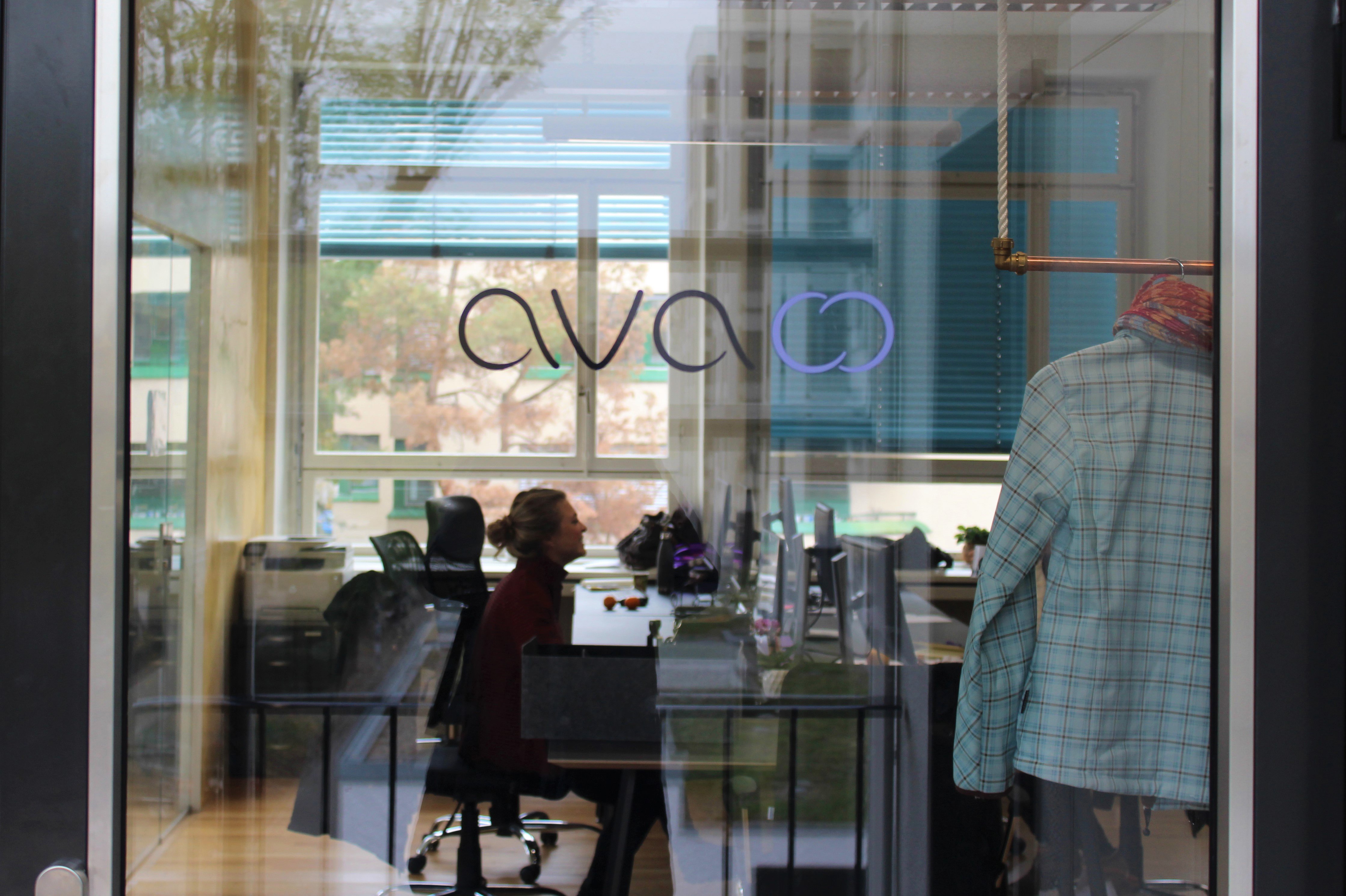Young Swiss entrepreneur innovates in women’s health
Lea von Bidder is among Switzerland’s most successful young entrepreneurs. She co-founded the Swiss startup Ava, an innovative medtech company working on women’s reproductive health. Lea’s ambition is to empower women through the advancement of medical research.
Ava’s head office in Zurich bears similarities with a student study area: young people work behind computers in a large, open plan office with bare walls. A few plants and some paper lanterns do for decoration. But this is one of the country’s emerging high-tech companies. In September, Ava won the Swiss Startup Award for the second consecutive year. Its tracer bracelet helping women to detect their fertile days has been praised by experts for its smart technology. It has attracted investors and sells well in the US and in Switzerland, where it has been on the market for two years. Ava’s co-founder Lea von Bidder was listed by Forbes as one of the 30 most important young entrepreneurs And she has a vision: to empower women with the help of high-tech medical research.

Lea, 28, first studied at the University of St Gallen. She then went on to do a Master of Science in global entrepreneurship at the Ecole de Management in Lyon, France, Zhejiang University in China and the Purdue University in Indiana. At the age of 22, she moved to India to create her first startup together with a university friend: the premium chocolate brand L’inoui. This experience in the Indian metropole Bangalore was critical for her career, says Lea, a tall woman with attentive eyes. There, she realised what it takes to create a real enterprise out of an idea on paper. “The most exciting, but also the hardest step of starting a company, is the moment when you’re trying to figure out whether you’re going to make this a reality or not.” The chocolaterie in Bangalore still exists, but Lea has since moved on.
Medtech to empower women
Back in Zurich in 2014, Lea co-founded Ava together with Pascal König, Peter Stein and Philipp Tholen. The idea of applying sensor technology to tracking menstrual cycles initially came from two of her co-founders. “They just both had very personal stories about cycle tracking in their relationships. And both had managed sensor startups before.” The idea was to modernise cycle tracking. “I feel that we – as women – have been treating the menstrual cycle, pregnancy and all of those topics with an air of mystery, and with a stigma attached to them. I think it was really important to bring this into the 21st century and de-mystify those areas of our lives. For as long as they stay shrouded in mystery they remain, to a certain extent, stigmatised.”
Ava’s sensor bracelet collects 3 million datapoints during sleep – physiological data on breathing, sleep quality, pulse rate and other parameters which correlate with an increase in reproductive hormones. The bracelet connects with the Ava app that uses an algorithm to identify the fertile days, as well as physiological stress levels, sleep quality and other elements, in real time. “It’s all about empowerment,” says Lea. “Data empowers you to take informed actions.” She stresses the importance of giving women the right tools to understand what is going on in their bodies.
Launched in the US in July 2016, the bracelet can be purchased in 34 countries and has helped more than 16,000 women become pregnant, according to Ava.

International reach with Swiss roots
The startup employs around 100 people and has offices in San Francisco, Hong Kong, Makati and Belgrade, in addition to its head office in Zurich. Lea directs the marketing department from the San Francisco office. She commends the Silicon Valley for the presence of strong support networks and opportunities for startups. “There’s an unbelievable ecosystem in the Valley that is hard to find elsewhere.” Although Lea lives in San Francisco, she comes to Switzerland roughly every six weeks to look after her Swiss team colleagues and reconnect with her family.
Swiss high tech
The technology for Ava’s sensor bracelet was developed at the Swiss Center for Electronics and Microtechnology, CSEM, in partnership with the Swiss Federal Laboratories for Materials Science and Technology, Empa, and Zurich University Hospital. “Switzerland is amazing,” says Lea. “I give special credit to the Swiss Federal Institute of Technology in Lausanne (EPFL) and in Zurich (ETH), who are doing a brilliant job. In my view, those two universities carry the entire startup ecosystem. Which makes Switzerland a perfect place for high-tech innovation.”
But Lea doesn’t just want to sell Ava’s product on the market. She wants to position the startup as a medtech company carrying out pioneering research in women’s health. A lot of medical products and treatments in this area have not been brought up-to-date for decades, she says. That is partly due to a lack of funding in women’s health research, but also because of “a certain sexism in research,” says Lea. “That just pushes women, who are half of the population, into situations where their problems aren’t really solved.” Lea’s vision for Ava is to make a difference in the various life stages of women – not only before and during pregnancy, but also to prevent unwanted pregnancies or during menopause. Currently, the sensor bracelet cannot be used as a contraceptive method. But Ava’s researchers are working on it.

Female leadership role
Lea is among the relatively few women entrepreneurs in Switzerland. Only about 14.5 per cent of companies in Switzerland have been founded by women. Having more female leaders in high-tech companies in particular would require more women to study in the STEM fields of technology, says Lea. Moreover, women struggle to strike a balance between the typical behaviour of an entrepreneur and the type of behaviour they appreciate, says Lea. “They need to learn that the typical traits you need as an entrepreneur aren’t necessarily bad for you.”
Lea is a natural leader. “I love running a company together with the co-founders, but I also think I could do something else. I’m not one of those entrepreneurs who thinks I can only work for myself.” Team management is what she enjoys most in her daily work at the moment. “A year ago, I was still doing most things on my own. Two years ago, I did everything on my own. You get more and more people in who take more and more of your work, and it’s fascinating how that changes your field of activity. Every year, you do completely different things, and that’s really interesting.”




